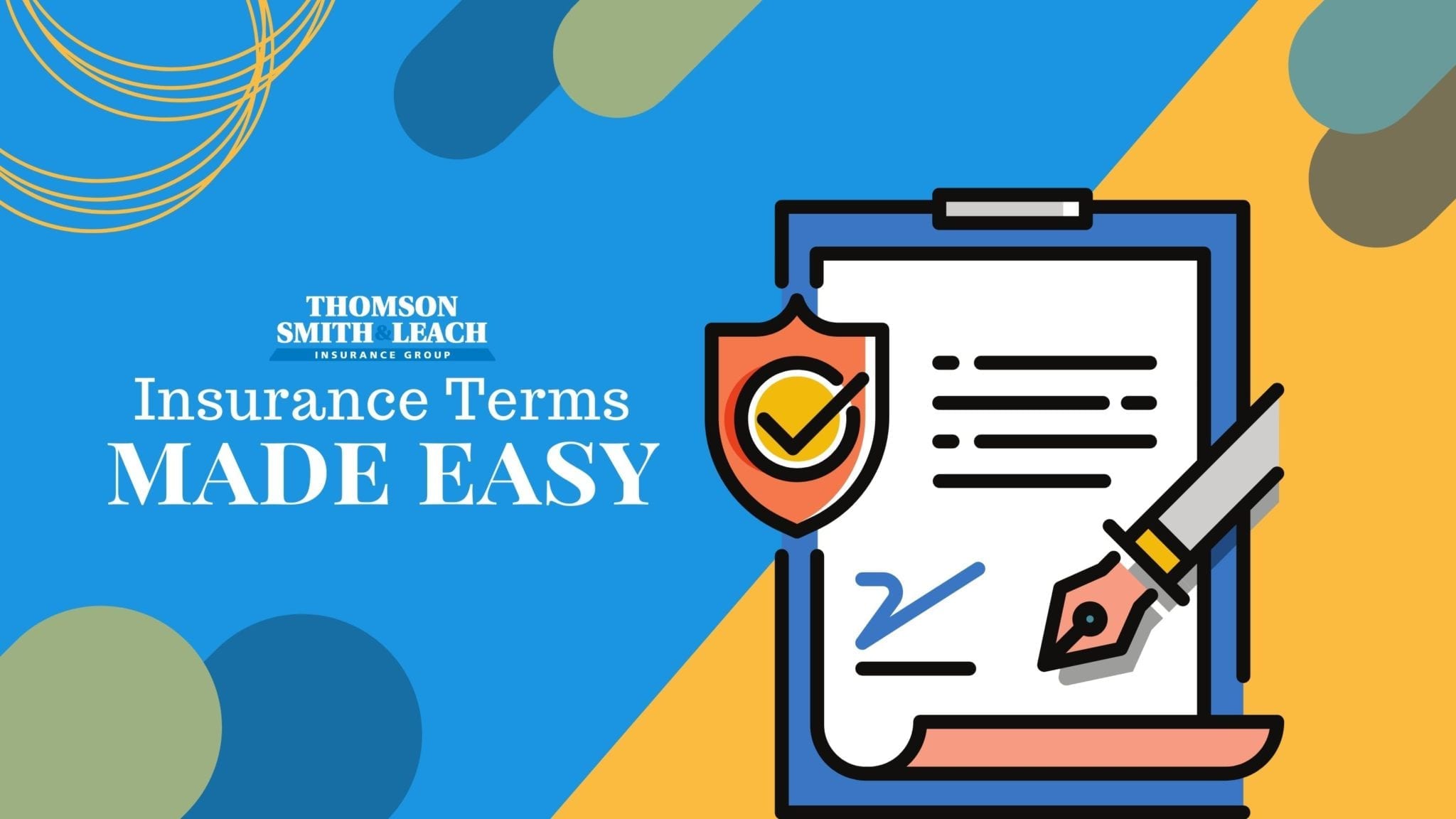Common Insurance Terms You Need to Know
Choosing and buying an insurance policy can be a confusing process for many, especially due to the use of legal jargon in an insurance policy document and conversations you may have with your insurance agent. To help save time when chatting with your agent and get you familiarized with insurance lingo, we’ve compiled a list of common terminology your insurance agent will use.
Adjuster
Adjuster is simply an insurance claims agent. Adjusters are given the task to evaluate an insurance claim to determine the insurance company’s liability under the terms of an owner’s policy. There are different types of adjusters too. They may represent the insurance company, they may be hired by the claimant (public adjusters), or they may be independent. All adjusters must earn a license to practice, this ensures that their clients are taken care of by the very best.
Comprehensive Coverage
The word Comprehensive Coverage will be used when something other than a collision damages your car. It is also known as physical damage coverage. This type of coverage will protect you when something other than a car accident damages your car such as theft, falling object, storms, or other natural disasters.
Liability
Liability coverage can help protect you if you cause an accident or someone is injured on your property. Without it, you could be found legally liable for resulting expenses, such as medical or legal bills. It’s a good idea to understand the liability coverage your insurance policies provide and what limits apply.
Endorsement
An insurance endorsement is an adjustment to an insurance policy that can add, remove, or change the coverage in the policy. Endorsements can be issued at the time of purchase, during policy term, or at renewal and it may result in changes to the premium. If anyone wants to make a change in the existing insurance policy and an insurer and insured have both agreed, then that change can be implemented.
Deductible
Deductible is the amount of money that you are responsible for paying when seeking insurance coverage. It is an amount that you agree to pay before your coverage kicks in. This means that you are responsible for coming up with the amount of your deductible before a claim gets paid. After you pay the deductible amount, your insurance will begin paying for their portion of whatever was lost.
When having a conversation with your insurance agent, it can be difficult to focus on the conversation at hand when they’re throwing out words that you don’t understand but we hope this blog has helped you to understand insurance vocabulary a little better. Feel free to use this blog as a reference whenever you need to get brushed up on insurance terminology.


Recent Comments